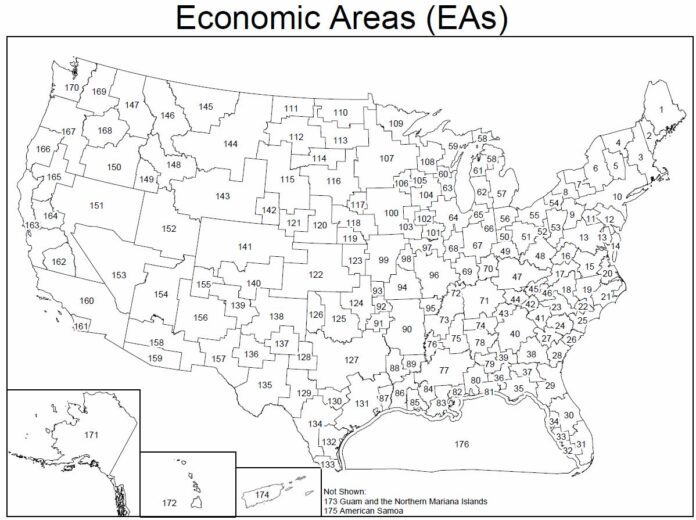All H-Block spectrum licenses up for bid in the ongoing Federal Communications Commission Auction 96 are now in play with all 176 “economic area” licenses now having received at least a minimum bid. The last to fall was the 10 megahertz EA license covering “Western Oklahoma,” which received a $33,000 bid during round 40 of today’s proceedings.
Overall, total potential winning bids nearly hit $1.24 billion at the end of Tuesday’s five bidding rounds, up more than $100 million compared with the close of bidding on Monday. Tuesday’s activity started off a bit slow with round 38 only snaring 33 new bids, before peaking at mid-day with 95 new bids placed during round 40.
The FCC suspended Wednesday’s bidding due to “severe weather conditions,” with plans to continue the proceedings with round 43 on Thursday.
Bidding was spread throughout the country, with a growing number of larger licenses receiving new bids. The New York City-based EA license continues to be the biggest draw of the auction, standing on a $217 million bid placed during round 24; while the No. 2 license centered on Los Angeles received two new bids today, pushing its price up to $166.8 million; and the No. 4 license centered on Boston received a new high bid of $57.4 million during round 41, which pushed it past the Washington, D.C./Baltimore-based license in total value.
Other large markets securing new bids today included the San Francisco-based license ($54.4 million); a pair of bids for the Miami-based license ($36.3 million); three bids for the Atlanta-based license ($30.1 million); two bids for the Houston-based license ($28.2 million); a new bid for the Detroit-based license ($25.2 million); and a pair of bids for the San Diego, Calif.-based license ($20.6 million).
The increased activity could be sourced to the FCC noting before today’s action that the proceedings were transitioning to “stage two,” which requires bidders to maintain current bidding eligibility by being active on at least 95% of its “current bidding eligibility in each round.”
“If a bidder is below its required activity, does not plan to submit any additional bids and does not want to use an activity rule waiver, the bidder may affirmatively use the ‘reduce eligibility’ function on the bidding tab,” the FCC noted in its announcement. “Use of the ‘reduce eligibility’ function will permanently reduce the bidder’s eligibility. Once eligibility has been reduced, a bidder will not be permitted to regain its lost bidding eligibility even if the round has not yet closed. During stage two, reduced eligibility for the next round will be calculated by multiplying the bidder’s current activity (the sum of bidding units of the bidder’s provisionally winning bids and bids during the current round) by twenty-nineteenths (20/19).”
All 23 bidding entities that qualified to participate in the auction remained active at the end of Tuesday. The FCC plans to keep winning bidders anonymous until the auction closes.
Bored? Why not follow me on Twitter?


